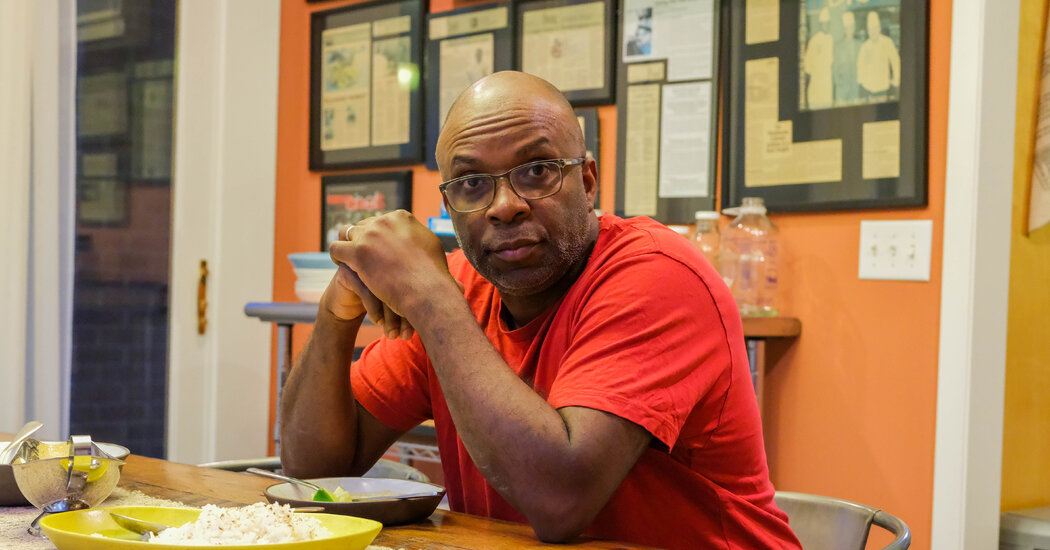
DURHAM, N.C. — The chef Ricky Moore was 10 years old when his maternal grandmother, Bernice McClease Loftin introduced him to a tradition that would define his professional trajectory — and his holiday celebrations.
For more than seven years, Ms. Loftin would hand Mr. Moore, her eldest grandchild, a cold 16-ounce glass bottle of Pepsi and a small parcel of roasted, salted peanuts at the end of each week, as they sat on the front porch of her home in eastern North Carolina. The two would then drop a few peanuts into the soda.
“It was a rush of sweet and salt with crunch and liquid happening all at once,” said Mr. Moore, the chef and owner of Saltbox Seafood Joint who this year was named Best Chef: Southeast at the James Beard Foundation awards. The ritual remains Mr. Moore’s most enduring and affecting food memory, one that informs the centerpiece of his Kwanzaa celebration: a luscious peanut fish stew.
Mr. Moore began observing Kwanzaa 20 years ago, and in the beginning he was especially interested in the food traditions surrounding the holiday. There is not a central, definitive culinary tradition that roots Kwanzaa, which is celebrated from Dec. 26 to Jan. 1, and many cooks look to foods across the African diaspora to anchor their festivities.
“I decided to only serve dishes that were truly meaningful and personal,” Mr. Moore said.
For Mr. Moore, 53, that means a dish where peanuts, an indispensable ingredient that binds his past and present, play a central role.
Typically, on the Friday of Kwanzaa, he makes 60 portions of peanut fish stew, which features punchy aromatics like ginger and garlic, as well as chopped fresh peanuts and a from-scratch peanut butter. Mr. Moore cooks the stew outdoors in a huge cast-iron cauldron.
“It’s too big for me to cook indoors from a safety standpoint,” he said, laughing.
The other meal he prepares for his family and friends — usually on the Sunday of Kwanzaa — is an allspice-scented brown stew pork shoulder, served with skillet fried plantains and rice.
Even though he is a chef, everyone in his immediate family has a hand in taking the stew across the finish line for their more than two dozen guests. His daughter, Hunter, who is a college freshman, prepares the vegetables and his 15-year-old son, Greyson, makes the peanut butter. His wife, Norma, makes the Carolina gold rice that they serve with the stew.



